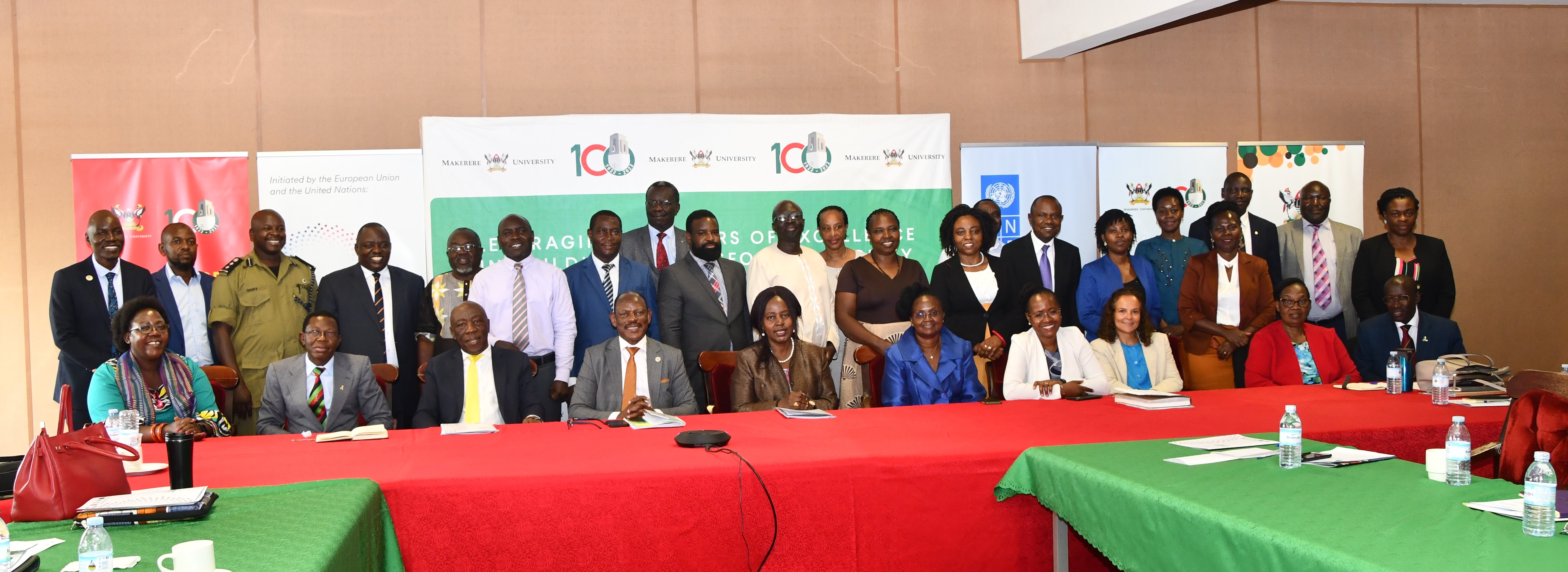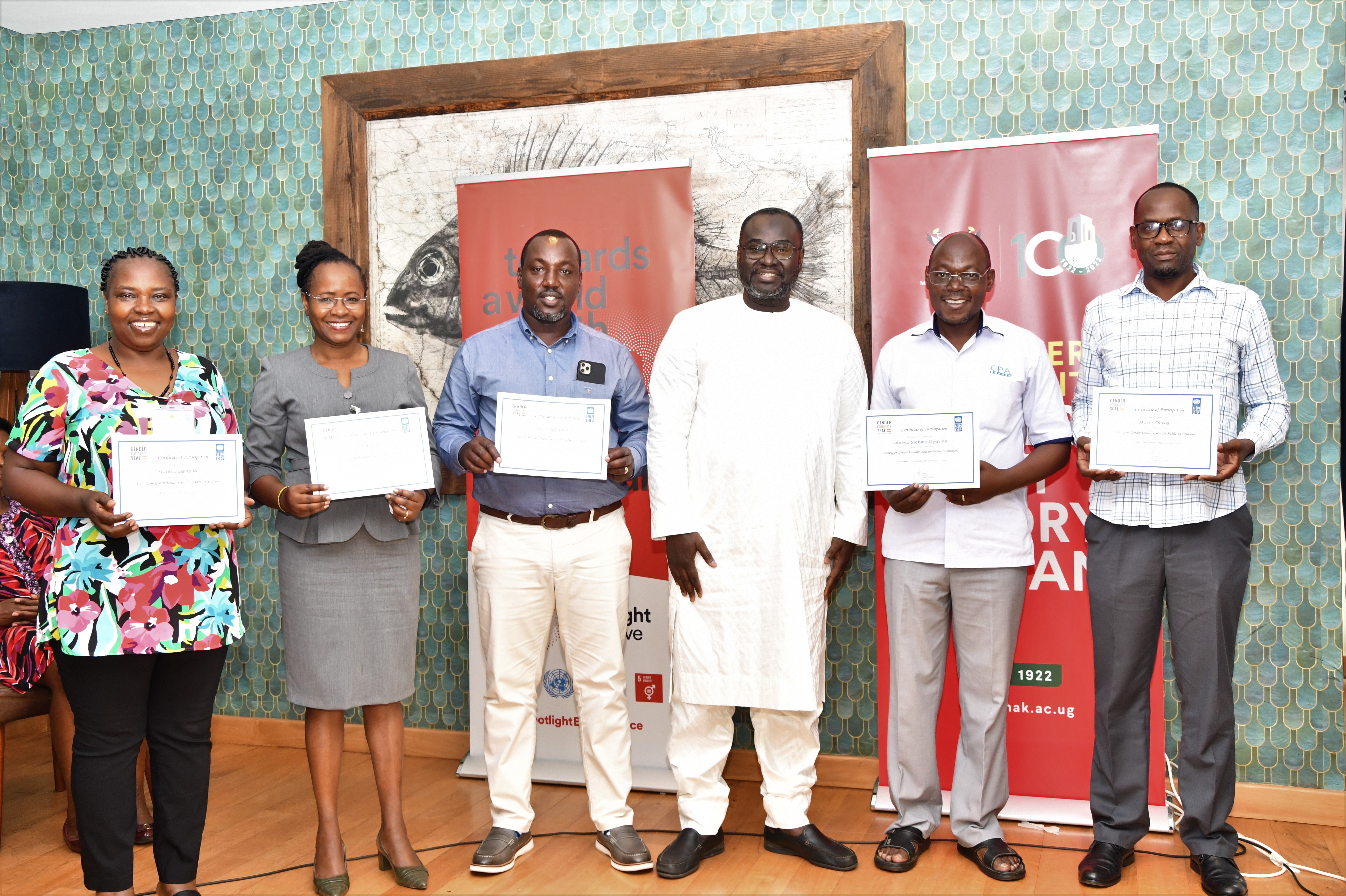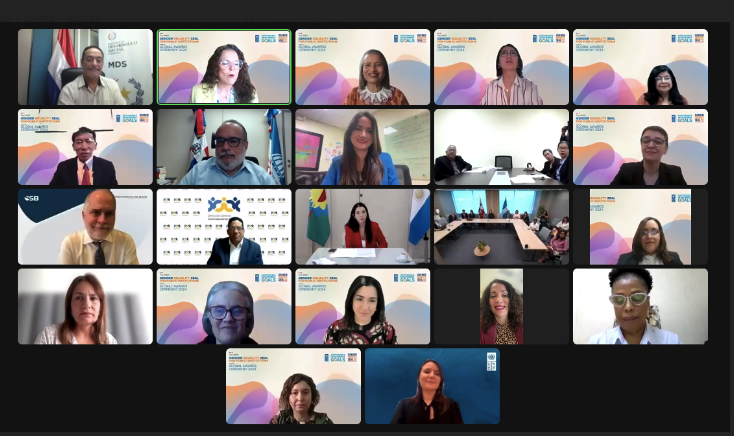Makerere University enrolls in the Gender Equality Seal for Public Institutions, as the first public institution in the continent and the first university part of the global Seal program.

When Makerere University in Uganda allowed women to have a 1.5-point advantage over men in admissions 30 years ago, it made a historic step among universities in East Africa. Today, more than ever before, the inclusion of a gender perspective in all functions of the University is crucial for its continued growth.
UNDP is committed a supporting these efforts, through the implementation of the Seal for Gender Equality in Public Institutions. The Seal will accelerate University’s efforts in tackling existing gender inequalities and gaps, enhancing its contribution to Uganda development goals and the 2030 Agenda for Sustainable Development.
Paving the way to address gaps in gender equality at the Makerere University
From a small technical college in 1922 with a strong male culture under the motto “Let’s be men!”, Makerere University today takes major steps towards greater gender equality promotion. In the 1990s, Makerere began implementing a broader gender agenda, mobilizing resources for gender mainstreaming program. Through the years, the University has included gender aspects in its main policies through its Strategic Plans (2008-2019 and 202-2030), developed and review its Gender Equality Policy and putting in place Anti-Sexual Harassment Policy and Regulations. Its School of Women and Gender Studies is at the forefront of academic and community initiatives to address gender and development issues from an African perspective. The faculty is growing into a center of academic excellence in gender and women’s studies at local, national and international levels. In 2001 Makerere put in place the Gender Mainstreaming Directorate (GMD), who acts as the Secretariat for the Makerere University Gender Mainstreaming Programme. With this, Makerere University has made deliberate efforts to integrate gender mainstreaming into both her core and support functions and at the same time providing an environment that ensures their growth and consolidation.
Makerere’s commitment for advancing gender equality and empowering women spreads out in multiple areas such as promoting women’s participation in decision-making, gender balance in staff recruitment and enrollment, retention and performance of students, and mainstreams gender into learning programs.
Despite these positive steps, there is a continued need to address the limited substantive gender integration in the main areas and core functions of the University. This, amongst other, includes improvement in the implementation of gender policies, provision of detailed gender-disaggregated data on staff recruitment and student enrollment and progression, and application of efficient methods for monitoring and retention of students.
Makerere University is the first University in Africa and the first public institution in Uganda to commit to the Gender Equality Seal for Public Institutions
To strengthen the promotion of gender equality at the University, Makerere has signed up to undertake and pioneer UNDP’s Gender Equality Seal for Public Institutions. The formal launch of the Seal in Makerere took place from 17 to 21 October. The launching included a formal meeting with the University Council, the highest authority of the University, and a 2.5 days training of a key group of Makerere staff on the Gender Equality Seal program and its requirements. During the training, 30 representatives from the University’s Council, Management and Colleges gained a greater insight of the Seal benchmarking and strengthened their capacities and skills for its roll-out.
The introduction of the Seal In Makerere is in line with UNDP’s approach of the UNDP Regional Project on Advancing Gender Equality and Women’s Empowerment for Africa. The initiative, supported by the Canadian Development Agency CIDA aims to support African regional and national public institutions to make transformative changes and enhance their contribution to the Agenda 20230 and Agenda 2063 for Africa.
Abdourahmane Dia, UNDP’s Deputy Resident Representative, said that that Makerere University has set the pace on the African Continent for Gender Equality Seal in Public Institutions, particularly at universities.
“As UNDP, we look forward to the University’s confirmation of the Gender Equality Committee and to work with you in implementing your road map and vision for this exciting programme. I reaffirm UNDP Uganda’s commitment to support Makerere in the process, in partnership with UNDP Global office and the Regional Bureau for Africa”
Abdourahmane Dia, UNDP’s Deputy Resident Representative in Uganda
Makerere’s case as a stimulus for the public sector in Uganda
Gender equality is among the key principles in the development of public institutions in Uganda and is included in national policies and strategies, such as the 1995 Constitution and the National Gender Policy 1997 and 2007. Voluntary implementation of the Gender Equality Seal by other public institutions will make it easier for them to follow and meet the goals for gender equality, strengthen their capacities, establish standards to promote an equal working environment and achieve gender performance and accountability, which will contribute to the overall development of the country. They will champions as institutions that actively contribute to reducing gender gaps and promoting gender equality.

School of Women and Gender Studies; Mr. Bruce B. Kabaasa, Univ Gov Council (first three from the left); Mr. Moses Oluka, Administration Deparment; Mr. Lubowa Ssebina Gyaviira, Finance (two first from the left), receive their certificates of participation on the training on the Gender Equality Seal for Public Institutions from Mr. Abdourahmane Dia, Reputy Resident Representative UNDP (third from right).











